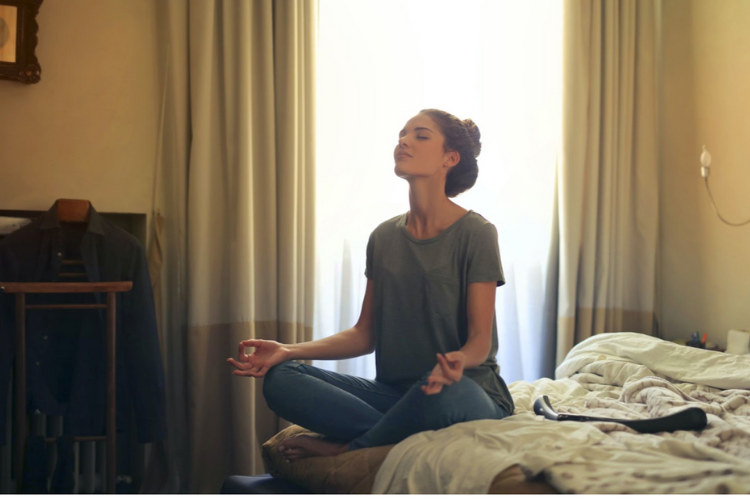How Exercise And Meditation Support Your Mental Health

Working on our physical well-being is just one part of achieving overall wellness. We also need to tend to our minds and emotions because our mental health plays a vital role in our health as a whole. Over the past few years, the world has paid more attention to mental health—for a good reason. We are more in tune with our emotions and know that we’re stressed, anxious, and worried.
In recent years, we’ve heard of many ways to care for our mental health. From better habits such as journaling and cutting back on social media to revolutionary innovations like temperature contrast therapy and apps dedicated to giving you a better day, there are a lot of solutions out there that can help us look after ourselves.
Sometimes, however, going back to the basics might just be what we need. And by basics, we mean exercise and meditation. So let’s take a deeper look into why these two are some of the most important activities you can do when you want to improve your mental health.
How Exercise Supports Your Mental Health
It’s easy to overlook the link between exercise and mental health due to its very widely-discussed physical benefits. However, constantly moving our bodies has a profound positive impact on our mood, concentration, and alertness.
Some reasons why physical activity can be good for your psychological well-being are the following:
- Exercise can decrease stress hormones. Cortisol levels drop as a result of exercise. It also raises endorphins, your body’s “feel-good” hormones, which naturally elevates your mood.
- Exercise can distract negative thoughts and emotions. Moving your body has the power to distract you from your troubles and concentrate your attention on the task at hand. It can even induce a zen-like state.
- Exercise can boost your confidence. Physical activity helps you shed pounds, tone your physique, and maintain a healthy glow. When you look and feel good, confidence comes naturally. So with all of this, you can experience a slight but considerable uplift in your mood as you project an aura of increased strength.
- Exercise can aid you in becoming more social. Since many physical activities can also be social, exercising with others can help you relieve stress twice as effectively. This is true whether you play softball in a league or enroll in an exercise class.
- Exercise can help with stress. A lower physiological reaction to stress may be associated with physical activity. Simply put, those who exercise more may experience fewer adverse effects of stress. So, in addition to all the benefits listed above, exercise can protect against future stress and cope with everyday stress.
You don’t have to start plotting out an entire exercise plan immediately. As with everything you do to improve yourself, take it one step at a time. Start small, like jogging for thirty minutes in the morning and doing some relaxing stretches at night, and then work your way up to more rigorous activities like joining a hiking group or weight training.
How Meditation Supports Your Mental Health
Meditation and mindfulness pop up almost immediately when looking for ways to improve your well-being. The reason behind this is because these activities help you reach a sense of calm, serenity, and balance that can benefit your mental and overall health.
We live in a world that fills our minds with too much information. With meditation, we can clear away this clutter that accumulates during the day, adding to the stress we feel.
Among meditation’s emotional and physical benefits are the following:
- Lowering heart rate
- Lowering blood pressure
- Enhancing the quality of our sleep
- Gaining fresh insight through difficult circumstances
- Acquiring techniques for stress management
- Increasing awareness of oneself
- Focusing on the present moment
- Reducing negative thoughts and unpleasant feelings
- Decreasing worry and anxiety
- Decreasing habits of overthinking
- Increasing creativity and imagination
- Increasing tolerance and patience
You might not think that meditation isn’t your cup of tea at first, but with a bit of practice and experimentation, you’ll find the type of meditation that works for you and what you enjoy doing. Of course, if learning to meditate alone isn’t working, you can always look for special meditation centers or group classes led by experienced instructors.
There is no such thing as a right or wrong way to meditate. What matters most is that your practice helps you feel better about yourself and your health.
The Takeaway
Building up our mental health takes time, effort, and consistency. It doesn’t happen overnight. Whatever steps you took today to support your mental health—whether as small as breathing deeply or as big as finally taking that hiking trip—we’re already very proud of you.
Keep in mind, however, that while exercising and meditation are some of the best things you can do to support yourself on your quest for mental wellness, nothing can replace asking for help when you need it. When looking for professional help online, remember to check HIPAA-compliant providers to protect your privacy, security, and health information.
For more mindful musings, tech talks, and coaching convos, check out all of Coach Rye’s insightful and motivational articles.
Written by Bash Sarmiento for CoachRye.com

 Join fellow professionals harnessing their strengths and architecting their success.
Join fellow professionals harnessing their strengths and architecting their success.